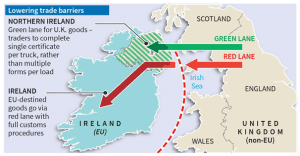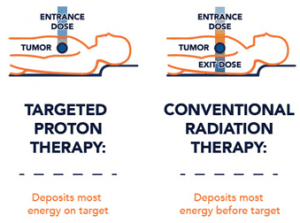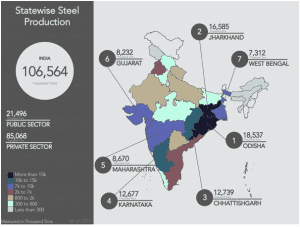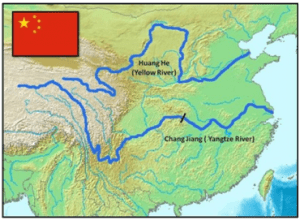THE CONTEXT: A five-judge SC bench decided to modify the 2018 rules for advance medical directives to make them more workable and simpler. Earlier, in 2018 Supreme Court granted legal status to the concept of advance medical directives and allowed passive euthanasia to recognize patient autonomy and the right to a dignified death. In this regard, this article will analyze the concept of advanced medical directives and related issues by comparing earlier and recent judgement of the Supreme Court on the issue.
WHAT IS AN ADVANCE MEDICAL DIRECTIVE?
- Advance directives are legal documents extending a person’s autonomy and control over their healthcare decision if they become incapacitated.
- These directives enable individuals to communicate preferences regarding medical treatment, end-of-life care and other aspects of care, as well as designate a surrogate decision-maker ahead of time before being incapacitated.
- It ensures that the wishes of the executor are honoured, even when they are incapable of making a decision or their decision-making capacity is severely impaired.
There are 2 primary types of advance directives:
- Living will: A living will is a limited document that expresses a person’s preferences for their medical treatment and care, normally in connection with end-of-life health care decisions.
- Durable power of attorney for health care: It designates a surrogate decision maker. In a durable power of attorney for health care, one person (the principal) names another person (the agent, proxy, health care representative, or surrogate, depending on the state) to make decisions about health care and only health care.
2018 JUDGMENT OF SUPREME COURT ON ADVANCE DIRECTIVE
- In March 2018, a Constitution Bench of the Supreme Court recognized the right to die with dignity as a fundamental right under Article 21.
- It has the legalized concept of advance medical directives and “passive euthanasia”, subject to stringent safeguards, which includes ending life-sustaining treatment for terminally ill patients.
- It was seen as a vital recognition of both patient autonomy over end-of-life decisions and the right to a dignified death.
- It also laid down guidelines for terminally ill patients to enforce the right, through an advance medical directive or living will, a legal document that details a person’s wishes for future medical procedures.
- However, doctors later found that some of the specific directions turned out to be obstacles and guidelines and the cumbersome procedures laid down by the Court made it difficult for these patients to execute a living will.
RECENT JUDGMENT OF THE SUPREME COURT ON ADVANCE DIRECTIVE
- The recent verdict came after a PIL filed by NGO Common Cause seeking recognition of the “living will” made by terminally ill patients for passive euthanasia.
- The Constitution Bench of the Supreme Court issued a judgment in Common Cause v. Union of India And Anr seeking modification of the guideline or Living Will/Advance Medical Directive. Modifications were sought under three broad parameters – contents, method of recording and implementation of advance directive.
- The top Court had said that it will not review its 2018 judgment on passive euthanasia and it is up to legislature to enact a law for terminally ill patients wanting to stop treatment and will only make the guidelines on “living will” more workable.
- The Court had laid down principles related to the procedure for execution of advance directives and spelt out guidelines and safeguards to give effect to passive euthanasia in both circumstances where there are advance directives and where there are none.
- Based on an application filed by the Indian Society for Critical Care Medicine (ISCCM), the apex court’s modification of the procedure has made the “right to die with dignity” more accessible and less bureaucratic.
- During the course of the hearing, it was made abundantly clear that the directions issued by the Court are to be in effect only till the law is enacted in the field.
COMPARISON OF BOTH THE JUDGMENT
ROLE OF JUDICIAL MAGISTRATE OF FIRST CLASS
2018 judgment
2023 judgment
Countersign of the jurisdictional judicial magistrate of first class was required. The officer was further required to record and preserve the document.
It is sufficient for an advanced directive to be attested before a notary or a gazetted officer. The requirements for it to be countersigned or presereved by a judicial magistrate have been dispensed with.
ROLE OF DISTRICT COURT REGISTRY
The judicial magistrate was required to forward a copy of the document to the registry of the jurisdictional district court, which would have to retain the document in its original format.
This requirement has been deleted.
PRELIMINARY OPINION
A medical board, comprising the head of the department, and at least three experts from the fields of general medicine, cardiology, neurology, nephrology, psychiatry or oncology with experience in critical care and with overall standing in the medical profession of at least twenty years, had to be constituted.
A primary medical board, consisting of the treating physician and at least two subject experts of the concerned speciality with at least five years’ experience, will be constituted. This board will form a preliminary opinion preferably within 48 hours of the case being referred to it
WITHDRAWAL OF TREATMENT
The decision of the medical board constituted by the collector had to be conveyed by the chairman, i.e., the chief district officer, to the judicial magistrate, who would then authorize the withdrawal of treatment after visiting the executor at the earliest and examining all aspects.
It is sufficient for the hospital to simply convey the decision of the primary and secondary medical boards and the consent of the person or persons named in the advance directive to the judicial magistrate before giving effect to the decision to withdraw the medical treatment administered to the executor. It is no longer necessary to wait for the judicial magistrate’s authorization.
REFUSAL BY FIRST MEDICAL BOARD
If the hospital medical board took a decision not to follow an advance directive, it had to make an application to the medical board constituted by the collector for considering and passing appropriate directions with respect to the document.
If the primary medical board takes a decision not to follow an advance directive, the nominees of the executor can request the hospital to refer the case to the secondary medical board for consideration and for passing appropriate directions.
APPEAL BEFORE THE HIGH COURT
If permission to withdraw treatment being administered to the executor was denied by the medical board, it would be open to the executor, his nominee, the treating physician, or the hospital staff to file a writ petition at the jurisdictional High Court.
If permission to withdraw treatment being administered to the executor is denied by the secondary medical board, it is open to the nominees of the executor, the treating physician, or the hospital staff to file a writ petition at the jurisdictional High Court.
ANALYSIS OF THE JUDGEMENT
- Less Cumbersome Process: Supreme Court agreed to make this process less cumbersome by modifying the existing guidelines. A magistrate will no longer play a role in the execution and implementation of an advance directive. The Court also simplified the composition of the medical boards that must determine whether life-support systems can be withdrawn. Further, it set time limits for these boards to take such decisions.
- Real time implementation: There is consensus that the guidelines have become significantly less unwieldy, thereby enabling them to be implemented in real-time situations.
- Protection of fundamental rights: The judgement ensured the Court’s Constitutional obligation to protect the rights of the citizens as enshrined under Article 21 of the Constitution.
- Need of legislation by Parliament: While such guidelines are useful and necessary to implement the concept of a ‘living will’ and advance medical directives, it is time for Parliament to come out with a comprehensive law. Such a law could also provide for a repository of advance directives so that the need to ascertain afresh its genuine nature does not arise at the time of its implementation.
- Issue of ‘’Mind over Body’’: Another dimension arose of issue of mind over body as the Court pointed to the case of renowned physicist Stephen Hawking, who despite the daunting diagnosis of amyotrophic lateral sclerosis, lived till 76 years. Formula One race car driver Michael Schumacher, who is reportedly in a coma for years after a skiing accident, may again wake up.
Court said there have been cases of “mind over body” and expressed its concern over the issue.
SITUATION IN WORLD REGARDING ADVANCE DIRECTIVE
The techniques and quality standards being used in advance medical directives are comparable in all Western countries. However, each state and country has their own way of dealing with the issue.
UNITED KINGDOM
UK considers the passive euthanasia as illegal and equivalent to manslaughter and does not promote this.
UNITED STATES OF AMERICA
USA has different laws in different states. While some states do not allow for euthanasia and on the other hand, euthanasia is allowed in some states like Washington, Oregon, and Montana. Advance Directive came in the year 1997, in Oregon for the first time a person’s right to end his life was recognized in law.
CANADA
Canada had announced that euthanasia and assisted dying would be allowed for mentally ill patients, however, the decision has been widely criticized.
SWITZERLAND
Switzerland has banned euthanasia but allows assisted dying in the presence of a doctor or physician.
BELGIUM
Belgium allow both euthanasia and assisted suicide (active euthanasia) for anyone who faces “unbearable suffering” that has no chance of improvement.
ISSUES RELATED TO ADVANCE DIRECTIVE
- Execution of the advance directive: The issue arise is related to proper execution of living will as in the advance directive is that no one, not even his next of kin, can force him to put on a ventilator which makes execution of living will very cumbersome.
- Multiple stakeholders: Another issue raised in the involvement of multiple stakeholders in the procedure which makes the process unworkable.
- Implementation of the Directive with reference to future advancements: There is a concern that if a person signs an advance directive today, but when the person is actually afflicted with the disease, there are there are huge advancements in the field of medical sciences and the disease becomes curable and in that case if a person is permitted to refrain from getting treated even when the disease is curable it might be so that they are devaluing the value of life itself.
- Definition of terminal illness: Real challenge lies in defining terminal illness. The ‘definition of terminal illness’ is a grey area in the whole debate of euthanasia. The Second grey area is the ‘definition of death’.
- Issue of privacy and dignity: As advance medical Directive is to be executed in the presence of two attesting witnesses, preferably independent, and countersigned by a Judicial Magistrate of the First Class. This raises the issue of privacy and dignity, which is likely to discourage ordinary citizens from executing advance medical directives.
THE WAY FORWARD
- Death literacy and awareness: Experts believe that there is a need of “death literacy” and awareness among people that will enable them to exercise their right to take charge of their last day.
- Need to be written in a standardized way: Advance medical directives or living wills need to be written in a fairly standardized way so that it does not appear vague and is easy to execute and understandable to ordinary citizens.
- Need of Flexibility: At the same time, the advance directive needs to be flexible in approach, so that medical decisions at critical times can be taken on case to case basis.
- Removal of uncertainty: Common Cause emphasized that these clarifications/ modifications are necessary to remove the uncertainty regarding the withholding or withdrawal of life-sustaining treatment that currently prevails throughout the medical community in India.
- Effective and workable implementation: It is necessary to ensure that the processes for the withholding or withdrawal of life-sustaining treatment are workable and give effect to the tenets of the Supreme Court’s judgment, that is, the right to refuse life-sustaining treatment and to die with dignity.
THE CONCLUSION: There is a need to recognize these documents and encourages their use as a simple legal tool by which people can express their wishes and have them honored. However, formal advance directives are not the only means of expressing such wishes. Both common law and constitutional principles are needed to direct that any authentic, clear expression of patients’ wishes should be honoured if within the scope of generally accepted medical standards.
MAINS QUESTIONS
1. Supreme Court’s recent judgement legalized the concept of advance medical Directive. How it ensured a person’s autonomy and control over their healthcare decision?
2. The right to die with dignity is recognized as a fundamental right in India under Article 21. Explain and compare it with the situations in other countries around the world.








